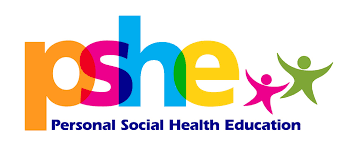PSHCE

Core Subjects
Additional Subjects
PSHCE and RSE are an integral part of education at The Winston Churchill School. We believe that PSHCE and RSE should be an inclusive part of a students whole-school experience and students should be able to understand that what they learn, enables them to make safe, healthy choices throughout their life. It is important that students are helped to make connections between the learning they receive in PSHCE/RSE education and their current or future real-life experiences.
A clear, progressive plan is in place which develops the knowledge of our young people as they learn throughout the years. Content is delivered across the school within Winston Extra lessons, tutorial activities, targeted assemblies, PE, Maths, Science and Ethics, Philosophy and Theology and RS lessons. The Winston Churchill School has strong links with external specialists who facilitate bespoke enrichment sessions and builds upon existing knowledge throughout each year group over time such as Be Smart Be Safe and Empowerment Days. These are just a few examples of our extensive programme of preventative education, and they are available to all students. Our research proves that all our PSHCE events are very well received by our students.
Click here to see our 5-year PSHCE/RSE plan (please note that this is subject to change as required).
The aim for PSHCE education is to provide pupils with:
- accurate, balanced and relevant knowledge
- accurate, balanced and relevant knowledge
- opportunities to turn that knowledge into personal understanding
- opportunities to explore, clarify and if necessary, challenge, their own and others’ values, attitudes, beliefs, rights and responsibilities
- the skills, language and strategies they need in order to live healthy, safe, fulfilling, responsible and balanced lives
- opportunities to develop positive personal attributes such as resilience, self-confidence, self-esteem, and empathy
- understand their ‘Pathways out’ – the options that they have in challenging situations.
Active engagement in learning, is most effective in teaching PSHCE. Students need opportunities to clarify their values and beliefs and rehearse and develop enquiry and interpersonal skills. Students enjoy a comprehensive, balanced and relevant body of factual information to inform their present and future risk assessment, decision-making and management.
A variety of teaching and learning strategies are used to deliver PSHCE which take into account students’ age, development, understanding and needs. Students need to work in a safe, secure climate to be able to explore their own and others’ attitudes, values and skills. Effective PSHCE lessons, activities. assemblies and workshops involve a high level of interaction where each student has planned opportunities for learning through:
- The development of a trusting relationship between the teacher and the students enabling the consideration of sensitive issues to take place
- Collaborative work
- Opportunities for reflection and enquiry
- Challenge within a safe environment
- Respect for each genuinely made contribution
- Negotiation
- Accommodating new information and skills
- Building on current experience and use of first-hand learning to achieve positive ends
It is also important that students are helped to make connections between the learning they receive in PSHCE education and their current and future ‘real life’ experiences. The skill of critical reflection is therefore at the heart of assessment for learning in PSHCE education.
